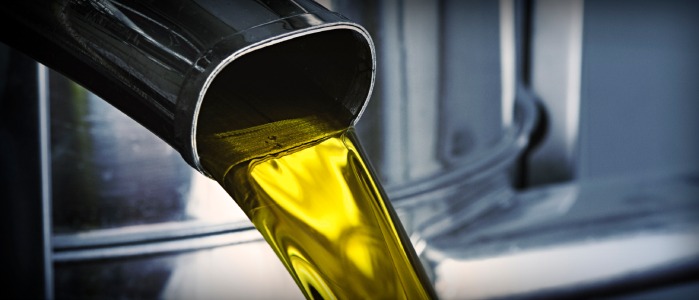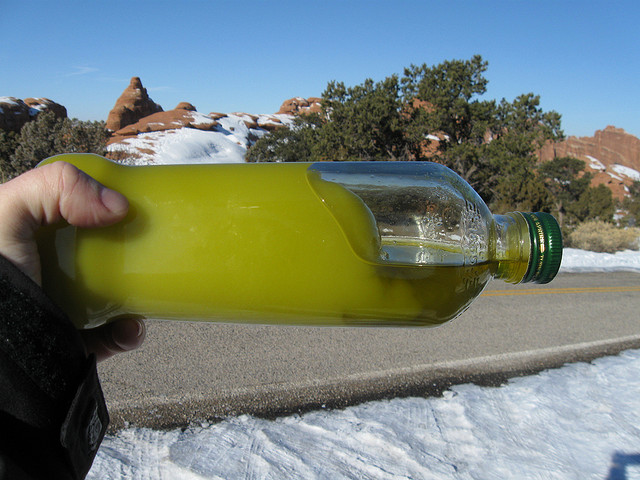
Ever heard of winterized olive oil? It’s not commonly discussed, but it’s a good topic to bring up since we’re in the midst of winter.
Winterized olive oil is any grade of olive oil that has had the waxes removed so that it doesn’t solidify in the cold weather (or in the refrigerator). This process is most commonly done on oils that will be used in dressings — it helps an oil-based dressing stay liquid in the fridge.
There’s a few discussions that are at play here. First, what is winterizing? And why would any olive oil need to be winterized in the first place? Lastly, if you’re looking for a winterized olive oil, we can give you some general guidelines and try to point you in the right direction.
What Is Winterizing?
The process of winterization consists of a crystallization (or partial solidification) of the oil, followed by a separation of solids (mainly waxes).
This process is done by cooling the oil -- when olive oil is cooled, it typically solidifies slowly. In the midst of this process, when it is partially solidified, the waxes (or solids) can be scooped or filtered out.
The Olive Oil Source explains winterization this way:
“Winterization is the commercial process whereby these waxes are removed to keep the oil clearer when stored on a cold shelf. It is used mostly for aesthetics and to improve mixing when combined into mayonnaise, sauces, and dressings.”
Why Would Olive Oil Need To Be Winterized?
Olive oil naturally solidifies at cold temperatures. The freezing temperature is still disputed, but is estimated to be between 35-40° F. At about 40-50°F, the olive oil can begin to solidify, making it look cloudy or crystalized. As the olive oil gets colder, it turns into the consistency of room temperature butter. When completely frozen, it becomes similar to a refrigerated or frozen butter consistency.

Winterizing olive oil helps to avoid this natural solidification or crystallization process. The olive oil source explains:
“Oil which has not been winterized will clump and form needle-like crystals at refrigerator temperatures as the longer chain fats and waxes in the oil congeal, but the oil will not usually harden completely unless chilled further. Some olive varieties form waxes which produce long thin crystals, others form waxes which congeal into rosettes, slimy clumps, clouds, a swirl of egg white like material, or white sediment which the consumer may fear represents spoilage. These visual imperfections may form outside the refrigerator during the winter when oil is exposed to cold temperatures during transport. Chilling or freezing olive oil does no harm and the oil will return to its normal consistency when warmed.” Source
Olive oil is winterized for specific customer purposes — particularly because it needs to be held at a cooler temperature, but still remain a liquid. For example, if you manufacture a liquid dressing that is sold in the deli section of a grocery store (which is refrigerated) you may want to opt for a winterized olive oil. This would mean that even when you cool your olive oil, it will remain a liquid.
Another example might be if you were located in Alaska, winterized olive oil would be ideal. Rather than constantly trying to heat your olive oil to be able to pour it smoothly during the winter months, you could receive oil that’s been winterized, which is much more likely to stay liquid at cold temperatures.
Looking For Winterized Olive Oil?
Typically, Extra Virgin Olive Oil is not winterized. Since it’s an unrefined olive oil and it has a low level of waxes, most suppliers and manufacturers prefer not to winterize it unless a specific customer needs it.
Other refined grades like Refined Olive Oil, Pure Olive Oil and Olive Pomace Oil may be winterized depending on the crop in stock and the mill(s) your supplier works with.
Check directly with your account manager or supplier to find out which olive oils they have in stock that are winterized.
Topics: Quality Control












